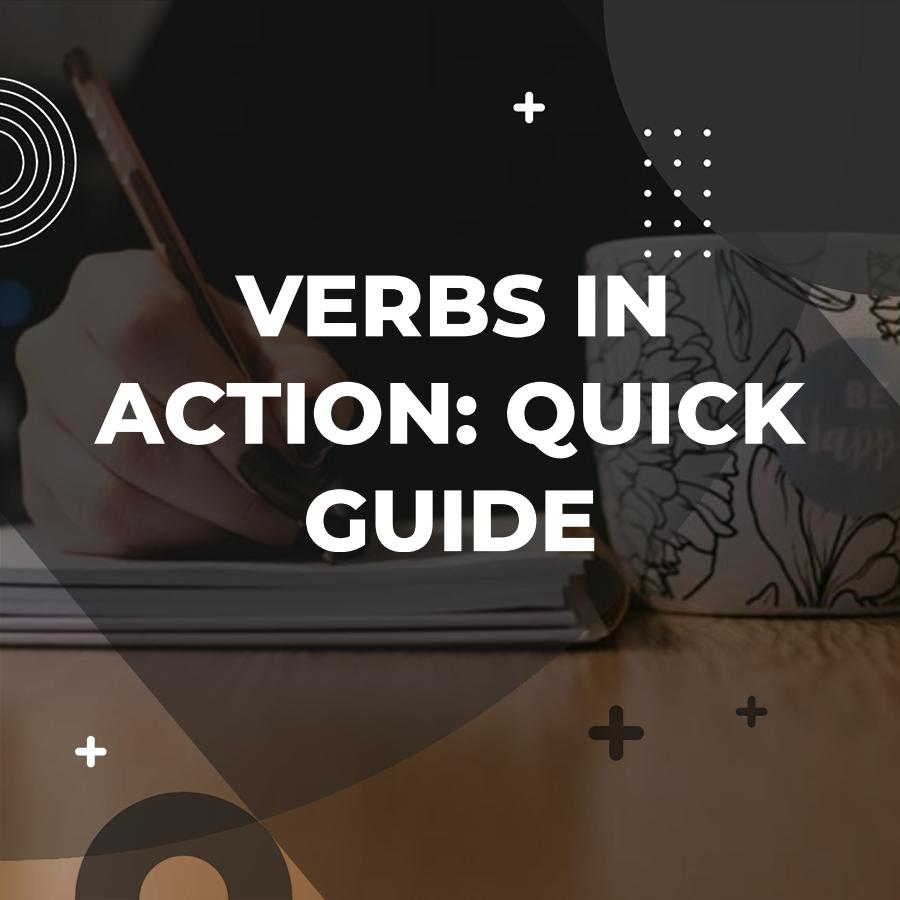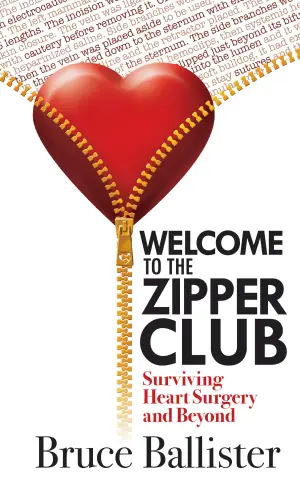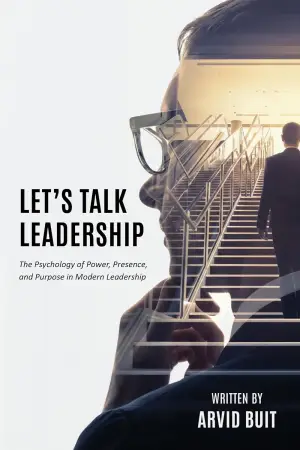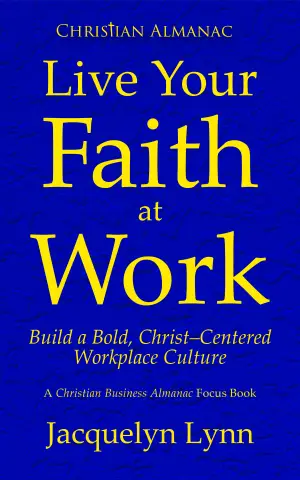Many writers struggle with using verb phrases in their writing correctly. Verb phrases, often overlooked yet essential, can make sentences understandable and more expressive.
A verb phrase consists of a main verb along with any auxiliary (helping) verbs. Understanding this can elevate your writing and enhance the clarity of your message.
Table of Contents
What is a Verb Phrase?
A verb phrase is a combination of a main verb and one or more auxiliary verbs. The auxiliary verbs help express different tenses, moods, or voices. In simplest terms, the main verb is the core action. Meanwhile, auxiliary verbs provide additional context about time, possibility, necessity, or manner.
For example, the verb phrase “will be going” includes the main verb “going” and the auxiliary verbs “will” and “be.” This construction indicates an action that will occur in the future.
Examples of Simple Verb Phrases
Here are some straightforward, everyday examples of verb phrases:
- “is eating”: This phrase indicates an ongoing action. The main verb is “eating,” and the auxiliary verb “is” suggests that the eating is currently in progress.
- “was running”: In this case, “running” is the main verb, and “was” indicates that the action took place in the past.
- “will call”: Here, “call” is the main verb, and “will” signals that the action happens in the future.
Types of Verb Phrases
Understanding different types of verb phrases can add variety to your writing. Below are some common categories:
1. Present Tense Verb Phrases
Present-tense verb phrases describe actions that are currently happening or habitual actions. They often use the auxiliary verbs “is,” “are,” or “have.”
Example:
- “She has been studying for hours.”
Here, “studying” is the main action, and “has been” makes it clear that this studying started in the past and is ongoing.
2. Past Tense Verb Phrases
Past-tense verb phrases reflect actions that have already occurred. These commonly use “was,” “were,” or “had” as auxiliary verbs.
Example:
- “They had finished dinner before the movie started.”
In this sentence, the verb “finished” shows the main action. The word “had” (when used as in “had finished”) shows the completion of this action before something else happens.
3. Future Tense Verb Phrases
Future tense forms express actions that will happen. The auxiliary verbs “will” or “shall” are prevalent in this type.
Example:
- “He will have completed the project by Friday.”
The main verb “completed” paired with “will have” provides a clear timeline for the action.
Perfect Tense Verb Phrases
Perfect tense verb phrases combine the auxiliary verbs “has,” “have,” or “had” with the past participle of the main verb to show completed actions.
Present Perfect
Example:
- “I have seen that movie three times.” In this case, “seen” is the main verb, and “have” conveys the idea that this experience is relevant to the present.
Past Perfect
Example:
- “She had written her paper before the deadline.”
Again, “written” is the main action, and “had” indicates that this action took place before another event.
Future Perfect
Example:
- “They will have arrived by noon.”
Here, “arrived” shows what action is expected to be completed in the future, indicated by “will have.”
Progressive Verb Phrases
Progressive verb phrases emphasize ongoing actions and commonly involve “am,” “is,” “are,” “was,” or “were” as auxiliary verbs.
Present Progressive
Example:
- “She is running a marathon this weekend.”
The main verb “running” shows that the action is currently happening.
Past Progressive
Example:
- “We were watching a movie when the power went out.”
Here, “watching” shows that the movie continued until the interruption.
Future Progressive
Example:
- “They will be traveling during the holidays.”
This sentence indicates an action that will take place over a period in the future.
Using Modal Verbs in Verb Phrases
Modal verbs such as “can,” “could,” “may,” “might,” “must,” “shall,” and “should” can also be part of verb phrases. They imply necessity, possibility, ability, or permission.
Examples
- “She can swim very well.”
“Swim” is the main verb, and “can” shows ability. - “You must finish your homework.”
Here, “finish” is what needs to happen, with “must” indicating necessity.
Causative Verb Phrases
Causative verbs express the idea that someone causes someone else to do something. Common forms include “make,” “have,” and “let.”
Examples:
- “I had my hair cut yesterday.”
This sentence shows someone else did the cutting, but you arranged for it. - “He made her cry.”
Here, “cry” is the action induced, and “made” shows who caused it.
Conditionals and Verb Phrases
Conditional sentences often use verb phrases to express hypothetical situations. These generally include the auxiliary verbs “would,” “could,” and “might.”
Examples:
- “If I had known, I would have called you.”
This construction uses both past and perfect forms to suggest what could have happened under different circumstances. - “If you study, you might pass the test.”
Combining “study” and “might pass” shows that passing the test is conditional upon studying.
Usage of Verb Phrases in Different Contexts
In Everyday Conversations
Writers often use verb phrases in casual conversations to share ideas quickly. For instance:
- I can go with you later.
- He is not coming to the meeting.
Here, verb phrases help communicate intent clearly and efficiently.
In Formal Writing
Formal writing—be it academic essays, reports, or articles—relies heavily on precise verb phrases. Consider these examples:
- The researchers have conducted a comprehensive study regarding climate change.
- The results indicate a strong correlation between diet and health.
Such phrases add a layer of professionalism and clarity to your writing.
In Literature and Creative Writing
Literature often employs varied verb phrases to convey emotions, actions, or settings vividly. Some examples include:
- The sun was setting, casting a warm glow over the valley.
- She had always dreamed of becoming an artist.
These examples demonstrate how verb phrases enrich narratives, adding depth to character motivations and actions.
Tips for Using Verb Phrases Effectively
- Be Clear: Always aim for clarity in your descriptions. Choose verb phrases that precisely convey the intended action.
- Vary Your Use: Don’t stick to the same type of verb phrase repeatedly. Alternating between tenses and structures may keep your writing more engaging.
- Avoid Overloading: While it’s good to be creative, too many auxiliary verbs can make sentences cumbersome. Balance is key.
- Read Aloud: Hearing your writing can help you identify awkward verb phrases that might need reworking.
Common Mistakes to Avoid
- Mixing Tenses: Ensure that the tenses in your verb phrases are consistent. Switching from past to present within the same context can confuse readers.
- Using Weak Verbs: Opt for strong main verbs where possible. For example, instead of using “is walking,” try “walks” if the present tense is suitable for your context.
- Neglecting Subject-Verb Agreement: Always ensure that your subject aligns with the verb phrase. For instance, “He play” is incorrect— it should be “He plays.”
Practical Applications of Verb Phrases
Crafting Clear Sentences
Creating clear, concise sentences often hinges on effective verb phrase construction.
- They are planning a surprise party.
- He will be appearing in the local theater production.
These phrases make sentences easy to understand and engaging to read.
Enhancing Descriptions
In descriptive writing, verb phrases add vividness and precision to your imagery.
- The dog has been barking all night, disturbing the neighbors.
- She is painting a mural that captures the spirit of the city.
Such phrases invoke mental imagery and create a more immersive experience for the reader.
Structuring Arguments
In argumentative writing, verb phrases help structure your points logically and persuasively.
- The evidence suggests a need for policy reform.
- Experts have argued for the necessity of change.
Using the correct verb phrases can lend authority to your arguments and reinforce your position.
Practice Makes Perfect
One of the best ways to improve your verb phrase usage is through practice. Regularly write sentences focusing on different verb phrases. Reread classic literature or modern articles to spot how proficient writers handle verb phrases. Engaging in writing exercises, participating in workshops, or simply jotting down daily thoughts can sharpen your skills.
Additional Information
Verb phrases are often more versatile and complex than they appear at first glance.
- Auxiliary Verbs: Sometimes called “helping verbs,” auxiliary verbs assist the main verb in a sentence and can significantly alter the meaning. For example, “has eaten” suggests a completed action, while “is eating” implies an ongoing action.
- Modal Verbs: These verbs express necessity, possibility, or ability. For instance, “can” indicates ability, as in “I can swim,” while “must” indicates a firm obligation, as in “You must finish your homework.”
- Perfect Tenses: The perfect aspect can express actions that have been completed concerning a point in time. For example, “She had finished her work before dinner” uses the past perfect to highlight the sequence of events.
- Progressive Aspect: This involves the present participle form of the verb and indicates ongoing action. For example, “They are running” shows that the action is currently in progress, while “was running” indicates past ongoing action.
- Phrasal Verbs: These consist of a verb combined with a preposition or adverb. They can drastically change the meaning of the original verb. For example, “give up” means to quit, while “give in” means to surrender.
- Voice Change: Verb phrases can switch from active to passive voice, altering the focus of the sentence. “The chef cooked the meal” (active) shifts to “The meal was cooked by the chef” (passive), changing the focus from the doer to the action itself.
- Compound Verb Phrases: In some cases, multiple verb forms can be used together for emphasis or clarity, such as “could have been going,” which combines potential and ongoing action.
- Infinitive Phrases: These are verb phrases that begin with “to” followed by a verb, such as “to run” or “to dance.” They can function as nouns, adjectives, or adverbs in sentences, broadening their utility.
- Split Infinitives: The separation of “to” from the verb it modifies (e.g., “to boldly go“) can lead to better phrasing and even a stronger emphasis in writing, challenging traditional grammar rules.
- Imperative Mood: Verb phrases in this mood give commands or requests, like “Close the door.” They typically omit the subject, making them direct and often urgent.
Frequently Asked Questions (FAQs) Related to Verb Phrase Examples
Q. What is a verb phrase?
A. A verb phrase consists of a main verb and any auxiliary (helping) verbs, which support its meaning. For example, in “has been running,” “has been” is the auxiliary verb phrase, and “running” is the main verb.
Q. Can a verb phrase be more than two words?
A. Yes, a verb phrase can have several words. For instance, “should have been studying” contains three auxiliary verbs (should, have, been) and one main verb (studying).
Q. What is the role of the auxiliary verb in a verb phrase?
A. The auxiliary verb helps to indicate tense, mood, or voice, which clarifies the meaning of the main verb. In “is jumping,” “is” helps show that the action is happening now.
Q. Is “eating cake” a verb phrase?
A. Yes, “eating” is the main verb in this phrase. It may also be considered part of a larger verb phrase if accompanied by auxiliary verbs, like “has been eating cake.”
Q. What are some examples of verb phrases in different tenses?
A. Sure! In the present tense, you could have “is studying.” In the past tense, “was reading.” For the future, “will be traveling” works as a verb phrase.
Q. How do verb phrases change with different subjects?
A. Verb phrases change form to agree with the subject. For example, in the present tense, “The girl runs” changes to “they run” because the verb must match the subject.
Q. Can a verb phrase stand alone in a sentence?
A. Yes, sometimes a verb phrase can stand alone. For example, in the response, “I can swim,” “can swim” is the verb phrase that conveys meaning by itself.
Q. Do all sentences contain a verb phrase?
A. No, not all sentences have a verb phrase. For example, commands like “Go!” or “Stop!” contain an implied subject but no explicit verb phrase.
Q. What is a multi-word verb phrase?
A. A multi-word verb phrase consists of a main verb and one or more auxiliary verbs, such as “will have been” in “They will have been working.”
Q. Can a gerund phrase be considered a verb phrase?
A. A gerund phrase begins with a gerund (an ing form acting as a noun), like “running in the park.” This phrase does not count as a traditional verb phrase, since the word serves as a noun, not a verb, in the sentence.
Conclusion
Verb phrases play a vital role in making sentences clear and dynamic. Recognizing and using these phrases sharpens writing and adds life to every sentence. Remember, a strong verb phrase not only conveys action but also brings your sentences to life. So, the next time you write, pay attention to those verbs and their helpers—your readers will thank you!







